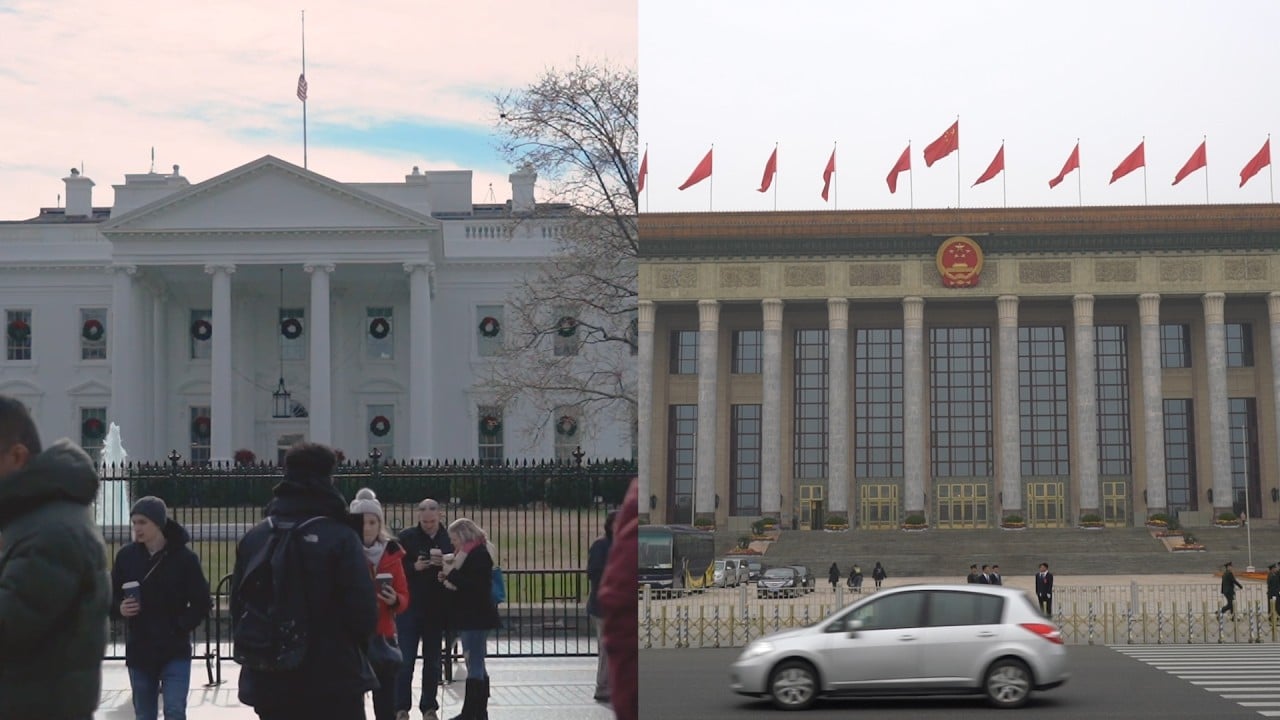
China urged to diversify soybean sources to curb reliance on US
- Call for new suppliers and increase in domestic production to minimise inflation and maintain social stability
- Combination of trade war and economic conditions made worse by coronavirus pandemic highlight vulnerability, scholars say
China had long been too reliant on imported soybeans from the United States and Brazil, and Beijing’s ties with both had worsened since the pandemic, said Li Wei and Zhao Lan, from Renmin University in Beijing.
The reliance on imported soybeans – made worse by a supply chain disrupted by the pandemic – had pushed food prices up in recent months, they said, in an article published on May 15 on the social media account of World Affairs, a Chinese academic journal.
Because soybean prices were heavily reliant on imports, they have a great impact on China’s inflation and social stability, the article said.
Days later, China’s top negotiator, Vice-Premier Liu He, spoke to US Trade Representative Robert Lighthizer over the phone, with the pair saying they were committed to “creating favourable conditions” for the deal’s implementation, according to state news agency Xinhua.
The deal requires China to buy an extra US$200 billion worth of US products and services over the next two years compared to 2017 levels, an amount many observers say will be difficult to implement in economic conditions worsened by the pandemic.
Trump escalated his rhetoric again last week and said he might “cut off the whole relationship” with China, after initially threatening to slap punitive tariffs on Chinese goods in retaliation for its handling of the Covid-19 pandemic.
“They should have never let [the pandemic] happen. So I make a great trade deal and now I say this does not feel the same to me,” he said. “I’m very disappointed in China.”
Li Wei, an international relations professor and lead author of the article, said: “The precondition for China to increase its purchase of US soybeans is that both sides are committed to the phase one deal.
“But now the US might restart a trade war because China is having difficulty implementing the deal, though I think because of force majeure in this case … then it wouldn’t make sense for China to adhere to its plan to buy from the US.”
Trump threatens to ‘cut off’ China ties, doesn’t want to speak to Xi
Li also pointed to uncertainties over soybean purchases from Brazil – China’s largest supplier of the commodity – citing criticism by Brazilian politicians of the Chinese government over Covid-19. The US and Brazil together make up more than 90 per cent of China’s imported soybeans, a major source of protein for animal feed and edible oil in China.
A combination of the US-China trade war and the pandemic have driven up prices of soybean, both imported and domestic, which Li said made China’s food prices vulnerable.
“It will be a form of decoupling the two economies, but it’s an option that should not be taken off the table to promote China’s security,” Li said.

02:06
Coronavirus pandemic creates ‘new Cold War’ as US-China relations sink to lowest point in decades
China’s agriculture ministry last year rolled out a plan to boost domestic soybean production by enlarging land area for the crop, increasing productivity and speeding up research.
But Darin Friedrichs, senior Asia commodity analyst at trading house INTL FCStone in Shanghai, said neither option would be easy. “China has been trying to increase purchases from other countries, including belt and road partners, but it’s difficult to get to a US or Brazil-sized market quickly,” he said.
“Brazil’s a major player in soybean exports now, but that took decades to achieve.”
US soybean imports to China dive as bumper Brazilian crop adds competition
Friedrichs said China’s limited amount of arable land also meant that it could mostly only sacrifice crop production to boost home-grown soybeans, which are now mostly non-genetically modified and for human consumption.
Li’s proposal would also be difficult to implement because of China’s industrialisation and concentration of livestock production, according to Gustavo Oliveira, an assistant professor with the University of California, Irvine, who tracks global soybean production.
“The main difficulty faced by China is about the continued industrialisation and concentration of livestock production, which guarantees that demand for soy-based livestock feed outpaces China’s capacity for domestic production and procurement from countries besides Brazil and the US,” he said.

